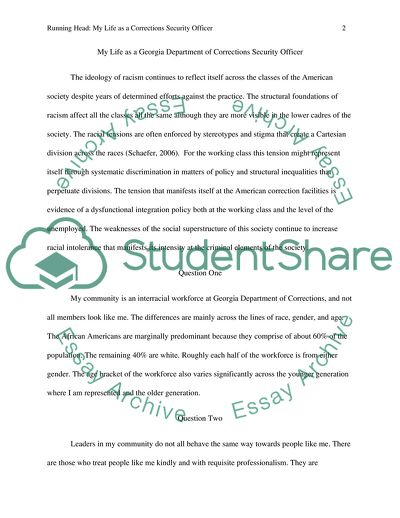Cite this document
(My Life as a Georgia Department of Corrections Security Officer Personal Statement, n.d.)
My Life as a Georgia Department of Corrections Security Officer Personal Statement. https://studentshare.org/people/1747603-my-life-as-a-georgia-department-of-corections-security-officer-valdosta-st-prison
My Life as a Georgia Department of Corrections Security Officer Personal Statement. https://studentshare.org/people/1747603-my-life-as-a-georgia-department-of-corections-security-officer-valdosta-st-prison
(My Life As a Georgia Department of Corrections Security Officer Personal Statement)
My Life As a Georgia Department of Corrections Security Officer Personal Statement. https://studentshare.org/people/1747603-my-life-as-a-georgia-department-of-corections-security-officer-valdosta-st-prison.
My Life As a Georgia Department of Corrections Security Officer Personal Statement. https://studentshare.org/people/1747603-my-life-as-a-georgia-department-of-corections-security-officer-valdosta-st-prison.
“My Life As a Georgia Department of Corrections Security Officer Personal Statement”. https://studentshare.org/people/1747603-my-life-as-a-georgia-department-of-corections-security-officer-valdosta-st-prison.


